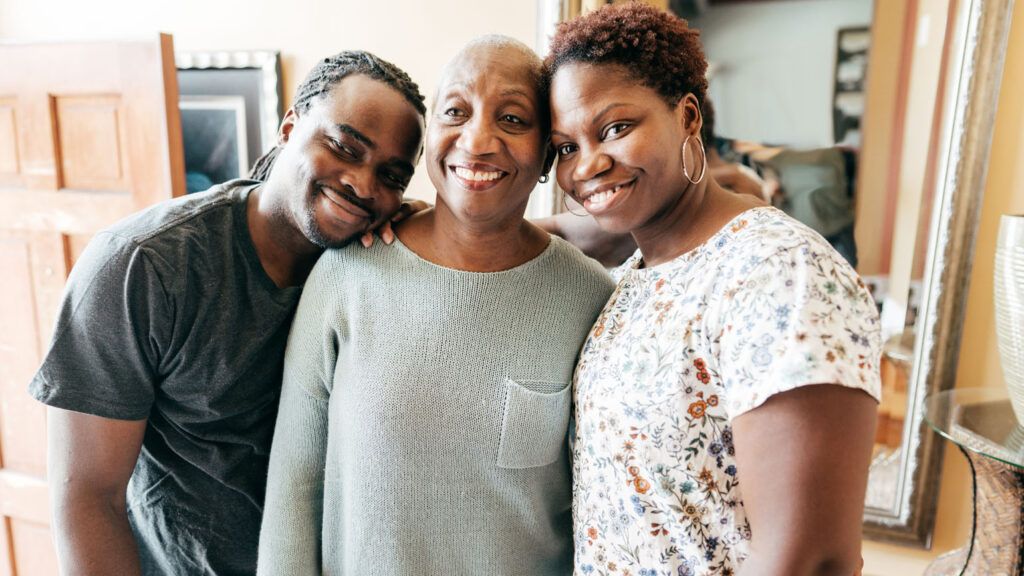Julie Hayes is the Content Manager at Benjamin Rose Institute on Aging.
“’Til death do us part” isn’t necessarily only a marriage vow. For many caregivers, it’s the promise you’ve made to an older loved one—to be there until the end. You may have had every intention of honoring this huge commitment when you made it, but serious life issues can get in the way of your best laid plans.
For any of a variety of considerations, it may no longer be feasible for you to continue as a caregiver, and that’s okay. You may have children or job concerns that require more of your time and attention. It could be that you have a health issue of your own that has made it impossible for you to care for your loved one. Or you may not have the skills and experience to provide the level of care that is now needed. It may even be that the stresses of caregiving have piled up and to continue would not be good for your mental well-being.
Although these are all valid concerns, it can still be difficult to step away from your role as a caregiver. You might feel as though you’ve left your loved one in the lurch, or that you haven’t lived up to the promises you made to yourself and your other family members. Remember, however, that your own health matters just as much as anyone else’s! When things aren’t working as planned, a new plan may be in order. The following tips can help you to make this tough decision and to ease the way forward for you and your family:
- Have a family conversation
If it’s feasible, it’s important to let your loved one and all involved family members know that you’ve made this decision and why. It’s similar to giving notice to an employer. You might want to get everyone together at one time or speak to each person alone. Whatever works best for all of you is fine. Try not to exclude any key people, or they may feel they’ve been caught unawares.
It can be good to prepare conversation topics beforehand, and to anticipate questions others may have. The subject of caregiving tends to be sensitive, so it can bring up emotionally charged responses. If things become heated, you may want to turn to family counseling services. Elder mediators specialize in assisting families to work through hard caregiving choices and may be a useful resource to explore.
- Figure out what comes next
A question that often arises under this circumstance is, “If I’m no longer the caregiver, who will fill my shoes?”
You can answer this in a number of ways. Perhaps another family member or friend will want to play a role. It may be that hiring a professional home health aide would be a great support. You might want to delegate tasks among various professionals or services. Or you might even want to look into assisted living.
If you discussed these issues at the outset of your caregiving journey, you may want to revisit certain points, introduce takeaways from your own caregiving journey and, above all, be guided by your older loved one’s preferences for what they want, if they’re stating them now or have previously.
If this is your initial in-depth discussion on the topic, you may need to take the time to research what services exist in your area. The Administration for Community Living’s Eldercare Locator is a resource for guidance. If you’re considering home health or assisted living, there are a number of online tools to facilitate your search, such as Assisted Living Locators and Medicare.gov’s Home Health Compare.
- Avoid disruptions to your loved one’s care
It may happen that you have to step out of your caregiving role suddenly because of an emergency. If that’s not the case, however, arranging a transition period can allow you to avoid disruptions in your loved one’s care. Although it’s important to determine the necessary timeline to meet your loved one’s care needs, you also need to take your own well-being into consideration. If you have to transition out of your role by a specific date, honor your needs and stick to your schedule.
- Be open to new ways of caregiving
Even though you’ve stepped away as the primary caregiver, you can still play a meaningful role in your loved one’s care. You can help in a number of ways. For instance, you may be able to make regular phone calls or run errands when you are free. If your loved one transitions from in-home care to assisted living, you may want to serve as a contact for staff or offer companionship by spending quality time there.
- Accept professional help
If you’re wrestling with your decision and where to go from here, or dealing with family conflicts, trained professionals can be excellent support. Geriatric Care Managers are a great resource under these circumstances, as they specialize in evaluating care needs, coordinating services and developing both short-term and long-term plans to support both older adults and their families. Care coaching services like Benjamin Rose Institute on Aging’s WeCare…Because You Do can also help to support you through this process and create a plan for your loved one’s future care.






